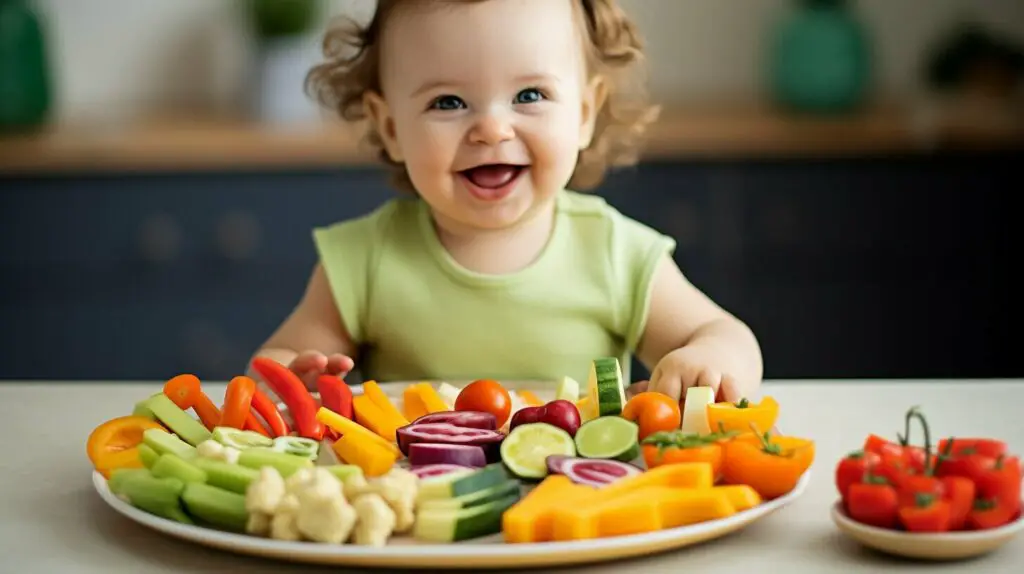As a new parent, you may be surprised to find that your baby’s poop has a distinct aroma reminiscent of popcorn. But before you start to worry, it’s important to understand that this smell is actually quite common and usually nothing to be concerned about.
In thisarticle, we’ll dive into the possible reasons why your baby’s poop might smell like popcorn, as well as what is considered a normal smell for baby poop.

Key Takeaways:
- Baby poop smelling like popcorn is normal and common.
- The smell of baby poop can vary based on factors such as diet, age, and overall health.
- Understanding what is considered a normal smell for baby poop can help you identify any potential issues.
Understanding Baby Poop Odors: What Does Normal Baby Poop Smell Like?
If you’re a new parent, you may be surprised by the different smells you encounter when changing your baby’s diaper. But what exactly is normal when it comes to the scent of baby poop?
The smell of baby poop can vary greatly depending on several factors, including their diet, age, and overall health. In general, baby poop has a distinct odor that most parents become familiar with over time. It may not always be pleasant, but it’s usually not cause for concern.
If you’re wondering what to expect from your baby’s poop, here’s a brief chart outlining the various smells you might encounter:
| Smell | Possible Causes |
|---|---|
| Sour milk | Normal for breastfed babies |
| Bitter or acidic | Related to introducing solid foods or teething |
| Sweet or fruity | Could indicate a bacterial infection or high sugar intake |
| Metallic | May indicate gastrointestinal bleeding |
| Rotten or putrid | Could be a sign of a serious infection or intestinal blockage |
If your baby’s poop falls within the range of normal smells, there’s likely no need to worry. However, if you notice a sudden change in odor or any other unusual symptoms, it’s always best to consult your pediatrician to rule out any underlying health concerns.
Causes of Popcorn-Like Smell in Baby Poop
You’ve probably wondered why your baby’s poop sometimes has that distinct aroma resembling popcorn. Well, there’s a scientific explanation behind this intriguing phenomenon. Let’s delve into the causes of this popcorn-like smell in baby poop:
1. Lactose Breakdown: The Sweet Culprit
The primary reason behind the popcorn-like scent in some babies’ poop is the breakdown of lactose, the natural sugar found in breast milk. When your baby feeds on breast milk, their body digests lactose, converting it into lactic acid. This process is perfectly normal and occurs in every baby who is breastfed.
2. Lactic Acid’s Influence
So, why does lactic acid make baby poop smell sweet, akin to popcorn? Lactic acid has a slightly sweet aroma, which is imparted to the poop during this digestive process. This is the main contributor to the unique scent that many parents describe as “popcorn-like.”
3. Variability in Digestion
It’s important to note that not all babies’ poop smells like popcorn, even if they are exclusively breastfed. The intensity of the scent can vary from one baby to another due to differences in their digestive systems and the rate at which they break down lactose.
4. Formula-Fed Baby Poop
While breastfed baby poop is often associated with this sweet smell, formula-fed baby poop may have a different odor. Formula milk contains different ingredients, and its breakdown in the digestive system can produce a smell distinct from breastfed baby poop. It may not have the same popcorn-like aroma.
5. Evolutionary Perspective
From an evolutionary perspective, this sweet scent might have developed as an indicator of a healthy and thriving baby. It’s a reassuring sign for breastfeeding mothers, suggesting that their baby is efficiently digesting the breast milk and deriving essential nutrients from it.
6. Normalcy and Reassurance
Understanding that the popcorn-like smell in your baby’s poop is a result of a natural digestive process can provide peace of mind to new parents. It’s a normal occurrence and often a sign of a healthy baby who is benefitting from breast milk.
The Sweet Scent of Breastfed Baby Poop
If you’re a breastfeeding mom, you might notice that your baby’s poop has a sweet smell, which can sometimes resemble the aroma of popcorn. Don’t worry, this is perfectly normal and is a sign that your baby is healthy and thriving.
The sweet smell of breastfed baby poop comes from the breakdown of lactose, the primary sugar found in breast milk. Lactose is broken down into lactic acid, which gives the poop its sweet smell. Additionally, breast milk contains antibodies and other immune-boosting properties that can help your baby fight off infections and stay healthy.
It’s important to note that formula-fed baby poop may have a different smell from breastfed baby poop. Formula-fed babies may produce poop with a stronger odor, and it may be less sweet-smelling than breastfed baby poop.
While sweet-smelling baby poop is generally a good sign, there are some instances where an unusual smell could be a cause for concern. If your baby’s poop has a foul or unusually strong odor, or if you notice any changes in color or consistency, it’s best to consult your pediatrician. These changes could indicate a digestive issue or infection that may require medical attention.
Your baby’s poop may vary from day to day, and that’s perfectly normal. As long as your baby is healthy, growing, and producing poop regularly, you can rest assured that everything is okay.
Remember to watch out for the sweet smell of breastfed baby poop, which is a normal sign of a healthy digestive system. If you have any concerns or notice any changes in your baby’s poop, don’t hesitate to reach out to your pediatrician. They can offer guidance and support to ensure the health and well-being of your little one.
Unusual Baby Poop Smells: When to Be Concerned
While popcorn-like smell is generally considered normal for baby poop, there are certain odors that may warrant concern. As a parent, it is essential to be aware of any changes in your baby’s poop smell and to consult your pediatrician if you notice any of the following:
- Strong, foul odors that persist for several diaper changes
- Bloody stools
- Green, watery stools
- White or gray stools
- Extremely hard or pellet-like stools
- Diarrhea lasting for more than a day
These unusual smells or stool characteristics could indicate an underlying problem such as an infection, allergy, or gastrointestinal issue. It’s always better to err on the side of caution and seek professional advice from your pediatrician if you have concerns about your baby’s poop smell.
Remember that every baby is unique, and their poop may vary day to day. However, keeping an eye out for any significant changes in smell or consistency can help you stay informed about your baby’s health.
The Stages of Baby Poop Smells
Knowing the different stages of baby poop smells can help parents recognize what is typical and when to seek professional advice. Newborn poop is generally odorless, but as babies start to consume breast milk or formula, the smell can become more pungent. As babies start to eat solid food, their poop will continue to change, becoming more solid and stinkier. Generally, baby poop reaches its most solid and least smelly state around the age of one.
Remember, every baby is unique, and their poop may vary in smell from day to day. It is essential to keep an eye out for any concerns or red flags that may arise.
Wrapping Up: Baby Poop and Its Many Scents
In conclusion, the popcorn-like smell of baby poop is a fascinating aspect of infant digestion. It’s primarily due to the breakdown of lactose into lactic acid, which imparts a sweet aroma to the poop. This scent can vary from baby to baby, and it’s more commonly associated with breastfed infants. Remember, as long as your baby is healthy, growing, and producing poop regularly, you can embrace this unique characteristic as part of their development. If you ever have concerns about your baby’s poop or notice any unusual changes, consult your pediatrician for guidance and reassurance.




